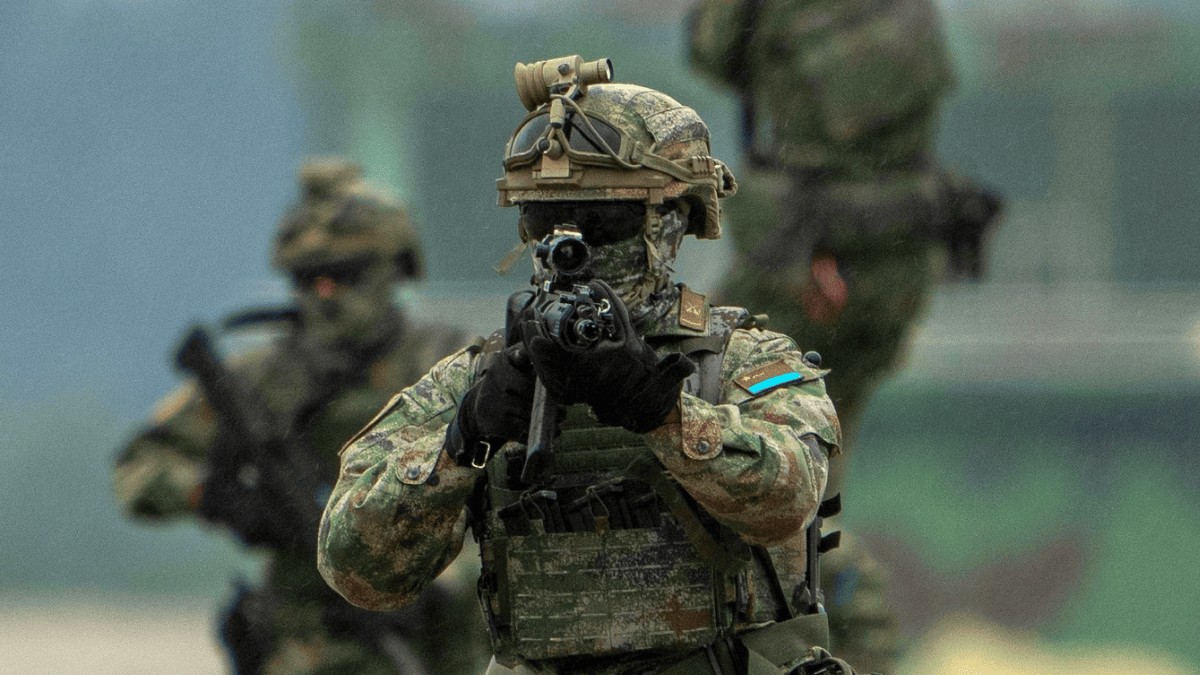
Corruption may have disrupted Chinese military modernization goals, Pentagon report says
PHOTO CAPTION: Illustrative photo via Grey Dynamics
By Idrees Ali and Phil Stewart
WASHINGTON (Reuters) - Corruption in China's military may have disrupted its progress towards its 2027 military modernization goals, the Pentagon said in its annual report on Beijing's military that was released on Wednesday.
Since last year, China's military has undergone a sweeping anti-corruption purge and last month the defense ministry said a top-ranking military official had been suspended and was under investigation for "serious violations of discipline."
The wide-ranging Pentagon report said that between July and December 2023, at least 15 high-ranking Chinese military officers and defense industry executives were removed from their posts.
"In 2023, the PLA experienced a new wave of corruption-related investigations and removals of senior leaders which may have disrupted its progress toward stated 2027 modernization goals," the report said, using an acronym for the People's Liberation Army (PLA).
U.S. officials, including the head of the Central Intelligence Agency, have said that Chinese President Xi Jinping had ordered his military to be ready to conduct an invasion of Taiwan by 2027.
China's official 2027 modernization goals include accelerating the integration of intelligence, mechanization and other tools while boosting the speed of modernization in military theories, personnel, weapons and equipment, the Pentagon said.
In a briefing with reporters, a senior U.S. defense official said that corruption was already having an impact on China's military because replacing senior officials can be disruptive and looking to uncover corruption itself can slow down military projects, including in the defense industry.
"Once they uncover corruption in one place or involving one senior official, there's sort of a bit of a spiraling effect (which) inevitably seems to draw in additional officials," the official, speaking on the condition of anonymity, said.
The report pointed to several removals from China's military rocket force, known as the People's Liberation Army Rocket Force (PLARF), an elite arm of the PLA that oversees its most advanced conventional and nuclear missiles.
"The impact on PRC (People's Republic of China) leaders’ confidence in the PLA after discovering corruption on this scale is probably elevated by the PLARF's uniquely important nuclear mission," it added.
The fate of Chinese Defense Minister Dong Jun is unclear, with some U.S. officials recently suggesting he was being investigated for corruption. China has said that reports about Dong being investigated are "shadow-chasing."
Dong would be the third consecutive serving or former Chinese defense minister to be investigated for alleged corruption.
"The PLA made uneven progress toward its 2027 capability milestone for modernization, which, if realized, could make the PLA a more credible military tool for the CCP’s Taiwan unification efforts," a document accompanying the Pentagon report said, using an acronym for the Chinese Communist Party.
A poll by Taiwan's top military think tank published in October said that most Taiwanese believe China is unlikely to invade in the coming five years but do see Beijing as a serious threat to the democratic island.
Over the past five years or so, China's military has significantly ramped up its activities around Taiwan, which Beijing views as its own territory over the strong objections of the government in Taipei, and has never renounced the use of force to bring the island under its control.
(Reporting by Idrees Ali and Phil Stewart; Editing by Chizu Nomiyama)










